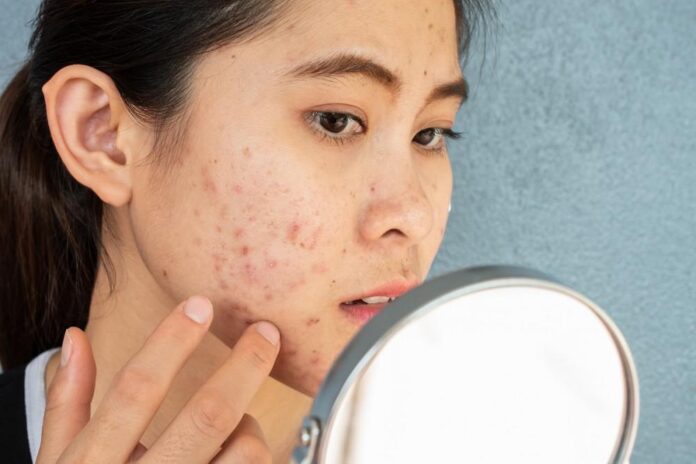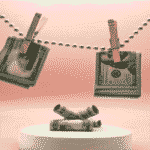There are so many myths about acne that people often fall victim to their own misconceptions. These myths include: drinking tea will make your skin darker, the great wall of china is visible from outer space, and wearing horizontal stripes will make you look flat chested. Acne is so prevalent in modern culture that it has become a taboo topic among teenagers and adults alike.
Due to this reason, we have all become victims of misinforming myths about skin care treatment. One myth for example includes the statement that “acne only affects adolescents.” This myth is shared among so many people that it eventually becomes a commonly held misconception among people of all generations and backgrounds. In such a scenario, it becomes important for consumers to be aware of these myths in order to properly treat their problematic skin and live a life free from blemishes.
1. Commonly Causes In Teenage
It’s common to experience acne when you enter the teenage years. A whopping 85% of the people who suffer with it are actually under the age of 19. This is around the time when hormones start to spike. Hormonal changes could cause excess oil which in turn leads to clogged pores, causing acne on your face, neck or back as well as other body parts. Another major factor linked with adolescence and acne is that of diet; consuming too much sugar in particular can adversely affect oil production within our own bodies from what we consume through food leading to acne outbreaks on any part of the body.
2. Due To Food Habits
Acne occurs when there is a build-up of the dead skin cells inside pores. Eating a diet consisting of high carbohydrate foods, skim milk products, iodine foods or sugary dishes or sugary consumables can be detrimental to those who may suffer from acne because these meals and drinks are basic in nature which cause an increase in blood sugar levels. This results in internal build-up causing skin oils and other harmful substances to rise up through pores and into your skin resulting in acne to occur.
3. Wearing Makeup
Over the years, there has been a cruel myth perpetuated that not applying makeup to an acne prone face will improve one’s skin. While it is wise to use oil-free products, it is also necessary to use products that are non-comedogenic or have salicylic acid and tea tree oil. These ingredients help not only heal acne, but keep scars from forming.
4. Chocolate Can Help You
Although it is important to control your diet when you have acne, it is unnecessary to give up chocolate. The reason for that is because chocolate has a low glycemic index, but the sugar and milk do have a high glycemic index. So, as an alternative, eat dark chocolate. It’s important not to get acne full of pimples and bumps with type 2 diabetes so indulge in dark chocolates. Also there’s a myth that eating oily foods leads to acne breakouts , so choose health food options instead of unhealthy carbohydrates.
5. Stay Away From Chemical Product
It’s a fact that using the wrong product or technique can cause your skin to become irritated and break out, but using the right products on your face and body will actually work wonders. You should use a sunscreen product containing zinc oxide with no chemical helioplex as it doesn’t contain any UV absorbent chemicals which are supposed to be in every sunscreen.
Read Also: Overview of Cisco Certifications and Career Paths
Also, always make sure to apply moisturizer on areas where hydration is needed! Some people have naturally dry skin, so moisturizers are their best friend when it comes to curing this type of problem. If you for some reason find yourself too lazy to apply daily moisturizer, then you might actually start experiencing more dryness from the inside out!
6. Try Simple DIY
Toothpaste can dry out pimples, but it can seriously irritate your skin. The same goes for chlorine – swimsuits that have been exposed to it will turn green, but are otherwise no better at keeping you from getting zits than swimsuits that haven’t been in contact with chlorine. Luckily there are safer ways to treat and prevent acne! For example you could try a home remedy like green tea, which has been found to help keep acne away.
7. Does it matter
The myth that hair care products affect acne is believed to be untrue primarily because oil and acne on the face are not connected, though it may still cause acne if not rinsed off or washed away. It can be claimed that stress does not directly cause acne, but instead, stress triggers hormonal changes which in turn leads to unclean skin.
8. Blackheads
Normally, the skin has a mechanism that clears out bad oil and dead cells on it because they can clog pores and cause acne. But sometimes this process is way too slow to keep up with the amount of makeup and pollution that builds up on our faces. This buildup oxidizes, making it look like dirt – but truly it’s just blackheads or whiteheads and pimples not dirt!
9. Wash it out
They’ll say: “wash your face” which you should do but it isn’t necessary to wash your face repeatedly. When you over-wash and dry out the area, the skin becomes frightened regarding its natural oil balance and begins overproducing sebum to rebalance itself. After some time, this makes acne worse, itching or irritation may also be caused by acne in washing too much or scrubbing the skin excessively too because it opens up pores.
10. Exposure In Sun
While it might seem like going out in the sun can help clear up your skin, we want to let you know that this isn’t true. In reality, overexposure to sunlight just leads to inflammation and breaks the skin down due to drying it out too much. You’ll end up with a lot more scars and still have blackheads all over your face!
Conclusion
We hope you enjoyed this blog post about acne myths. Acne treatment can be difficult to navigate, but it’s important to remember that there are always different ways to find what works for you. The more you can learn about acne and how to treat it, the better off you’ll be.







